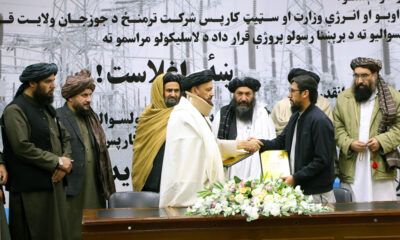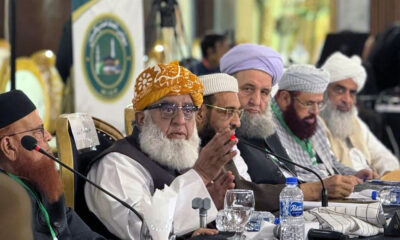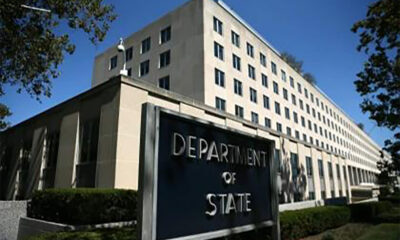Regional
Imran Khan appears in court as Pakistan braces for violence

Pakistan’s former Prime Minister Imran Khan appeared in court Wednesday, a day after he was dragged from another court and arrested in Islamabad, and his supporters clashed with police across the country.
A judge was asked to approve keeping the 70-year-old opposition leader in custody for up to 14 days.
Khan, who lost power last year but remains the country’s most popular opposition figure, is the seventh former prime minister to be arrested in Pakistan. His arrest deepened political turmoil and sparked violent demonstrations on Tuesday, Associated Press reported.
At least two people were killed in the overnight violence, one in the southwestern city of Quetta and the other in northwestern Pakistan, and dozens were wounded in various parts of the country.
In eastern Punjab province, where authorities said 157 police officers were injured in clashes with Khan supporters, the local government asked the army to step in and restore order.
Pakistan’s GEO television broadcast footage showing Khan appearing before a judge at a temporary court inside a police compound Wednesday. The former premier was seen seated in a chair, holding documents. He appeared calm but tired.
The judge is expected to rule on the request for a 14-day detention later in the day. Meanwhile, Khan’s legal team challenged his arrest before the Islamabad High Court, seeking his release.
Khan’s Pakistan Tehreek-e-Insaf party had called for demonstrators to remain peaceful, hours after mobs angered over the dramatic arrest set fire to the residence of a top army general in the eastern city of Lahore.
When he was arrested on Tuesday, Khan was appearing in court on multiple graft charges brought by Islamabad police. As he showed up in court, dozens of agents from the National Accountability Bureau backed by paramilitary troops stormed the courtroom, breaking windows after Khan’s guards refused to open the door.
Khan’s supporters attacked the military’s headquarters in the garrison city of Rawalpindi near the capital, Islamabad, but did not reach the main building housing the offices of army chief Gen. Asim Munir.
Other demonstrators tried to reach the prime minister’s residence in Lahore, but were driven off by baton-wielding police. Others attacked vehicles carrying troops and hit armed soldiers with sticks. So far, police and soldiers have not fired at protesters.
The military has not commented on the attacks on its facilities. None of the leaders from Khan’s party denounced the attacks on the military.
A police statement Wednesday said officers in eastern Punjab province arrested 945 Khan supporters since Tuesday — including Asad Umar, a senior leader from Khan’s party. Dozens of Khan supporters were also detained in Islamabad, Karachi, Peshawar and elsewhere.
Shah Mahmood Qureshi, senior vice president from Khan’s party, appealed for peaceful demonstrations Wednesday, urging followers: “Don’t damage public property, don’t attack offices, as we are peace lovers.” He said the party is considering challenging Khan’s arrest in the Supreme Court.
By morning, police said some 2,000 protesters still surrounded the fire-damaged residence in Lahore of Lt. Gen. Salman Fayyaz Ghani, a top regional commander. They chanted slogans at the military, including “Khan is our red line and you have crossed it.” Ghani and his family members were moved to a safer place when the mob on Tuesday first attacked their sprawling house.
Police deployed in force across the country, and placed shipping containers on a road leading to the sprawling police compound in Islamabad where Khan is being held and where he appeared before a judge at the temporary court placed there for security reasons, according to the government.
Amid violence, Pakistan’s telecommunication authority on Tuesday blocked social media, including Twitter. The government also suspended internet service in Islamabad and other cities. Classes at some private schools were canceled for Wednesday.
Rights group Amnesty International said it was alarmed by reports of Pakistani authorities blocking access to mobile internet networks and social media — Twitter, Facebook, and YouTube are suspended for a second day. Amnesty urged authorities to show restraint, saying clashes between law enforcement and Khan’s supporters risk human rights violations.
Regional
Pakistan agrees to $4 billion arms deal with Libyan National Army
The package reportedly includes air, land and naval equipment and may involve the sale of JF-17 fighter jets and Super Mushak trainer aircraft to Libya.

Pakistan has reached a military equipment deal worth more than $4 billion with Libya’s eastern-based Libyan National Army (LNA), Pakistani officials said, despite a long-standing United Nations arms embargo on the country.
The agreement was finalised following a recent meeting in Benghazi between Pakistan’s Army Chief, Field Marshal Asim Munir, and Saddam Khalifa Haftar, the LNA’s deputy commander-in-chief. Officials said the deal will be implemented over about two and a half years, Reuters reported.
According to officials familiar with the agreement, the package includes air, land and naval equipment and may involve the sale of JF-17 fighter jets and Super Mushak trainer aircraft. Estimates of the deal’s value range between $4 billion and $4.6 billion, making it one of Pakistan’s largest-ever defence exports.
The LNA confirmed entering a defence cooperation pact with Pakistan, covering weapons sales, training and military manufacturing, though it did not provide details. Haftar described the agreement as the start of a “new phase of strategic military cooperation.”
Libya has been under a UN arms embargo since 2011, requiring international approval for weapons transfers. It remains unclear whether exemptions have been sought. Pakistani officials said the deal does not violate UN restrictions, noting that several countries continue to engage militarily with Libyan factions.
Pakistan has been actively expanding its defence exports, promoting its domestically produced and China co-developed JF-17 fighter as a lower-cost alternative to Western aircraft.
The Libya agreement would mark a significant expansion of Pakistan’s defence footprint in North Africa amid growing international competition for influence in the country.
Regional
Imran Khan calls for street movement, urges public to reclaim rights
Khan has appealed for collective action, saying the movement was necessary to restore the rule of law, ensure justice, and end what he described as politically motivated and pre-determined court decisions.

Former Pakistani Prime Minister Imran Khan has called on his supporters and the wider public to prepare for a nationwide street movement, urging citizens to rise in defense of their fundamental rights.
In a message issued from Adiala Jail, where he is currently detained, Khan appealed for collective action, saying the movement was necessary to restore the rule of law, ensure justice, and end what he described as politically motivated and pre-determined court decisions.
Khan said the recent verdict against him was part of sustained political pressure, alleging that the ruling was delivered without due legal process and without giving him a fair opportunity to present his defense. He warned that such practices have severely damaged the credibility of Pakistan’s judicial system.
The former prime minister also called on lawyers, constitutional experts, and members of the legal community to stand with the public and play an active role in safeguarding the Constitution and the rule of law. He said political stability and economic progress were impossible without an independent and impartial judiciary.
Addressing civil-military relations, Khan said his criticism was aimed at individuals rather than institutions. He described the military as belonging to the people of Pakistan, while alleging that actions taken against him in detention were carried out on the instructions of military authorities.
Khan drew comparisons with the 2007 political crisis, warning that continued erosion of the rule of law would have lasting consequences for the country. He praised judges who resist pressure as national heroes and criticized those who, he said, follow orders without question.
The statement comes amid heightened political and judicial tensions in Pakistan, with Khan’s trial and detention continuing to draw strong domestic and international attention.
Regional
Pakistan court hands Imran Khan, wife 17-year jail terms in another graft case
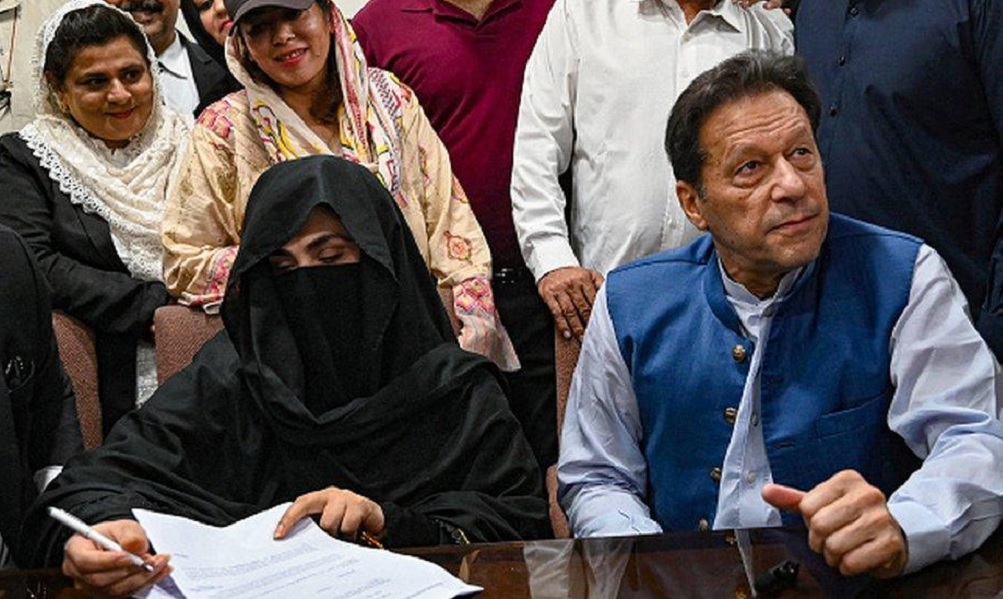
A Pakistani court on Saturday sentenced former Prime Minister Imran Khan and his wife Bushra Bibi to 17 years in prison each in a corruption case involving the under-priced purchase of luxury state gifts, the court and Khan’s lawyers said.
The latest conviction adds to a series of legal troubles for Khan, who has been behind bars since August 2023, and is currently serving a 14-year sentence in a separate land graft case, Reuters reported.
He faces dozens of cases filed since he was ousted from office in 2022, ranging from corruption to anti-terrorism and state secrets charges. Khan has denied wrongdoing in all the cases, which his party says are politically motivated.
“The court announced the sentence without hearing the defence and sentenced 17 years imprisonment to Imran Khan and Bushra Bibi with heavy fines,” Khan’s family lawyer Rana Mudassar Umer told Reuters.
They were handed 10 years’ rigorous imprisonment under Pakistan’s penal code for criminal breach of trust and a further seven years under anti-corruption laws, the special court of Pakistan’s Federal Investigation Agency said in its verdict.
He faces dozens of cases filed since he was ousted from office in 2022, ranging from corruption to anti-terrorism and state secrets charges. Khan has denied wrongdoing in all the cases, which his party says are politically motivated.
“The court announced the sentence without hearing the defence and sentenced 17 years imprisonment to Imran Khan and Bushra Bibi with heavy fines,” Khan’s family lawyer Rana Mudassar Umer told Reuters.
They were handed 10 years’ rigorous imprisonment under Pakistan’s penal code for criminal breach of trust and a further seven years under anti-corruption laws, the special court of Pakistan’s Federal Investigation Agency said in its verdict.
Khan’s jail term from Saturday’s ruling would begin after he has served the 14 years from the land graft case, Information Minister Attaullah Tarar said.
The case relates to luxury watches gifted to Khan by Saudi Arabia’s Crown Prince Mohammed bin Salman during official visits, which prosecutors said Khan and his wife then purchased from the state at a heavily discounted price in violation of Pakistan’s gift rules.
Tarrar said the purchase resulted in losses of several million rupees for the state.
Zulfi Bukhari, a spokesperson for Khan, said the verdict “ignores basic principles of justice” and turns the process into “a tool for selective prosecution.”
Khan has told his legal team to appeal the decision at the Islamabad High Court, Salman Safdar, another one of his lawyers, told reporters outside the jail where the trials were being held, Geo News reported.
ANOTHER STATE GIFTS CONVICTION
The case is separate from an earlier state gifts prosecution linked to Khan’s August 2023 arrest. Earlier sentences of 14 years for Khan and seven years for Bushra Bibi were later suspended on appeal. The couple denies wrongdoing.
The cases are commonly known in Pakistan as the Toshakhana cases, referring to the state repository where gifts received by public officials are deposited.
Following the verdict, Khan’s Pakistan Tehreek-e-Insaf (PTI) party announced plans for protests across Punjab on Sunday.
Khan’s party also says routine family and legal visits have been blocked in recent weeks despite court orders. Authorities deny any mistreatment and say he is receiving all facilities available to prisoners.
Khan, a former cricket star turned politician, remains one of Pakistan’s most polarising figures, with his legal battles unfolding as his Pakistan Tehreek-e-Insaf party remains sidelined from power.
-

 Latest News2 days ago
Latest News2 days agoAfghanistan signs 30-year deal for marble mining in Daikundi
-

 Latest News4 days ago
Latest News4 days agoAfghan border forces prevent illegal entry of hundreds into Iran
-

 Latest News3 days ago
Latest News3 days agoPakistan summons Afghan diplomat over deadly attack in North Waziristan
-

 Latest News3 days ago
Latest News3 days agoAfghan health minister calls for medical cooperation between Kabul and New Delhi
-

 Latest News4 days ago
Latest News4 days agoJapan allocates nearly $20 million in humanitarian aid for Afghanistan
-

 Latest News3 days ago
Latest News3 days agoKarzai urges reopening of girls’ schools and universities for Afghanistan’s bright future
-
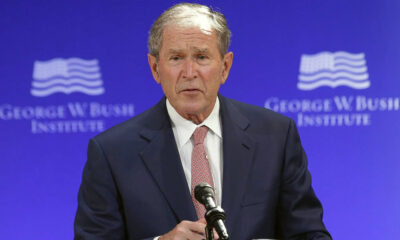
 Latest News2 days ago
Latest News2 days agoBush Institute criticizes Trump administration’s Afghan immigration freeze
-

 Health4 days ago
Health4 days agoIndia issues over 200 medical visas to Afghans in last four months




